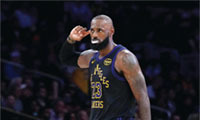▶ FRANK BRUNI
Do we occupy the dizziest heights of privilege? Or is ours a humbler altitude, and by how much? Six Flags doesn’t use that language, but it might as well, because it offers some half-dozen gradations of access and coddling, from a high-priced position near the front of every line to a much less expensive ticket and much longer waits. There are levels — regular, gold, platinum — and they suggest that the experience is more than just a sprawling day of dips, whirls and happy shrieks. It’s a referendum on your very station in society. I don’t recall anything quite like it from the amusement parks of my youth. Back then our lives as consumers, and as Americans, didn’t seem so relentlessly tiered.
Much has been made of commercial flights these days, with all those divisions between first class and coach. For various supplements or with various deals, you can get a few more inches of legroom or, shy of that, a prime aisle seat. You can get to board earlier or later, and thus hoard or miss out on the overhead bins. Will it be long before there’s a ranked queue for the bathroom? I’m not even sure I’m kidding.
It’s not that pecking orders or badges of affluence are anything new. Our homes, cars, clubs and clothes have long been advertisements of our economic clout, used and perceived that way.
But lately, the places and ways in which Americans are economically segregated and stratified have multiplied, with microclimates of exclusivity popping up everywhere. The plane mirrors the sports arena, the theater, the gym. Is it any wonder that class tensions simmer? In a country of rising income inequality and an economy that’s moved from manufacturing to services, one thing we definitely make in abundance is distinctions.
When I grew up, school essentially came in two sizes: public or private. Now, private is a starting point, with many costly but broadly employed add-on’s: the tutor for specific subjects; the tutor for SATs; the individual sports coach; the college-admissions consultant, whose fee can exceed $5,000.
With taxis as with Boeings, there are degrees of pampering. Uber, a relatively new car service in dozens of American cities, allows you to specify, just minutes before your vehicle’s arrival, precisely how regal and roomy it should be. If you see yourself in an S.U.V., then an S.U.V. is the chariot in which others will see you, too.
Broadway theaters have premium seating, which is so expensive that a high roller can often get the best real estate at the last minute. It’s as if scalping has come out of the closet, louder and prouder in an age of unapologetic elitism. Luxury boxes now take up more space in stadiums than ever; elsewhere in some ballparks, the differences between sections involve not just better views but finer food and a more solicitous staff.
No sooner does a fitness trend appear than it spawns strata, so that you can spin in candlelight at SoulCycle, in less gilded trappings at Crunch, or in bare-bones fashion at the Y.M.C.A. There’s an accordant price scale. Even the fanciest gyms have rungs of enhanced fanciness, such as executive locker rooms. At Equinox, trainers are designated by numbers — Tiers 1, 2 and 3 — that signal their experience and hourly rate, and there are deluxe inner sanctums within certain Equinox clubs. They use eye-scanning technology to figure out who belongs.
Bronze, silver, gold, platinum: a vocabulary once associated with jewelry or Olympic medals is now attached to your Hertz status, your Delta level, your Obamacare plan, establishing how far forward or back in the pack you belong, herding you into categories that sound suspiciously like evaluations of worth. This is how precious you are.
And while part of what’s happening is just a refinement of niche marketing and personalized service for the wealthiest Americans at the tippy top, the stratification travels beyond and below that echelon, to communal events at which everyone can see which plateau everyone else inhabits, Six Flags being an example.
It has something called The Flash Pass, named for the superhero. A regular version of it costs at least $50 on top of general admission, but for at least $80, you get faster access to rides, and for $110, you get that plus the ability to go around on a ride twice in a row. Your second spin pre-empts some eager, nearby aspirant’s first.
For reasons besides thrift, my vote is that my family not go that route.
스마터리빙
more [ 건강]
[ 건강]이제 혈관 건강도 챙기자!
[현대해운]우리 눈에 보이지 않기 때문에 혈관 건강을 챙기는 것은 결코 쉽지 않은데요. 여러분은 혈관 건강을 유지하기 위해 어떤 노력을 하시나요?
 [ 건강]
[ 건강]내 몸이 건강해지는 과일궁합
 [ 라이프]
[ 라이프]벌레야 물럿거라! 천연 해충제 만들기
 [ 건강]
[ 건강]혈압 낮추는데 좋은 식품
[현대해운]혈관 건강은 주로 노화가 진행되면서 지켜야 할 문제라고 인식되어 왔습니다. 최근 생활 패턴과 식생활의 변화로 혈관의 노화 진행이 빨라지고
사람·사람들
more
“이민 선구자들에 바치는 헌사”
이진영 감독은 이화여대 언론정보학/영상학과를 졸업하고 하와이로 이민왔다. 하와이 한국일보 기자, KBFD-TV 앵커 등으로 10년간 일하고 2…

김영화 수필가 ‘한국디지털문학상’ 대상
본보 화요칼럼 필진으로 활동하고 있는 수필가 김영화씨가 한국디지털문인협회(회장 김종회)가 주최하는 제4회 한국디지털문학상 공모에서 로 대상을 …
화랑청소년재단 차세대 정체성 리더십 포럼 성료
화랑청소년재단(회장 샘 신)과 화랑인터내셔널(총재 박윤숙)이 주최·주관한 제21회 차세대 정체성 리더십 포럼이 지난 15일 LA 시청에서 20…
제1회 ‘도전! 한국역사퀴즈대회’ 성료
미주한국학교총연합회(회장 이영숙)가 주최한 ‘제1회 도전! 한국역사퀴즈대회’가 지난 15일 부에나파크 하나교회에서 성황리에 열렸다. 선착순 모…
박정희 기념사업회 탄신 108주년 기념행사
미주박정희대통령기념사업회(회장 이재권)는 지난 14일 아로마 센터에서 박 대통령 탄신 108주년 기념 만찬을 개최하고 기념 촬영을 진행했다. …
많이 본 기사
- 380만 건 적체에 멈춘 이민법원… 한인들 ‘신분 위기’
- 토랜스 제일장로교회 EM 목사, 부당해고 소송
- 탁재훈, 아들 얼굴 공개..美 명문대 재학·남다른 피지컬 자랑
- 교황 “극도로 멸시적인 대우” 트럼프 이민정책 거듭 비판
- ‘처가 손절’ 이승기, 부모에 ‘억’ 소리 나는 ‘효도’.. “26억대 타운하우스 증여”
- 267명 탄 여객선 좌초… 9시간만에 전원 구조
- 김우빈♥신민아, 10년 열애 끝에 결혼
- 공화당 선거구 조정안, 텍사스 연방법원서 제동
- ‘엡스타인 파일 공개 법안’ 가결
- 내년 선거 민주당 ‘압도’… 공화당 ‘경고등’
- 가주 주지사 경선구도 ‘안갯속’
- 악뮤 수현, 다이어트로 얼마나 뺀 거야..반쪽된 근황
- 메디케이드 받으면 영주권 신청 거부된… 1
- 고령층 노린 보이스피싱 자금세탁
- [전문가 칼럼] 나이를 잊게 하는 뇌 건강법
- 50년 상환 모기지?… 전문가들 “득보다 실이 크다”
- “정기적인 음악 감상… 치매 위험 감소와 관련”
- 월세 대신 자산 만드는 방법
- 무인도 좌초 여객선 항해사, 휴대전화 딴짓하다가 ‘쾅’
- 로보택시 경쟁 가열… 아마존 죽스 가세
- 구혜선, 벤처기업 대표 변신..특허 취득한 헤어롤 론칭 “완판 기대”
- 올해 스키 시즌 시작 맘모스는 오늘 개장
- “임금 미지급 시 최대 3배 벌금… 주 고용법 강화”
- 친구들과 걷는데 나만 뒤처진다면… “폐 기능 검사 받아보세요”
- 빈살만 극진환대 트럼프…영부인 만찬 … 1
- [수잔 최 변호사의 LIFE &] 서울 가을 자락에서 만난 쉼터
- ‘패스트트랙 충돌’ 1심유죄 벌금형…나경원 “정치항거 명분인정”
- 루카스 미술관 내년 9월 오픈
- 호날두 직접 만난 美 대통령 “아들 앞에서 체면 살아” 농담... 일론 머스크·빈 살만과 함께 ‘백악관 만찬’
- [경제 트렌드] 부유층이 원하는 건 ‘프라이빗 럭서리’
- 트럼프, 조지아 단속에 “난 바보같이… 1
- [송년행사 게시판] 한국외국어대학교- 한국외국어대학교 남가주 동문회
- ‘패스트트랙 충돌’ 나경원·송언석·황교안 등 1심 유죄…벌금형
- 25일 추수감사절 노인잔치 파바월드·시니어센터 주최
- 22기 뉴욕평통 출범식⋯“힘찬 출발” 1
- 의회가 공개 결정 ‘엡스타인 파일’… 정·재계 ‘뇌관’되나
- [지평선] 타이레놀과 아세트아미노펜
- ‘일본 7승-한국 6승-미국 3승’
- [백상논단] 젠지혁명와 유스 액티비즘
- 李대통령 “북핵 고도화 방치안돼…실용적·단계적 한반도비핵화”
- 트럼프, 엡스타인 파일 공개법 서명… “민주당에 역풍 불것”
- 트럼프, 채권 집중 매입 8월 이후 최대 4억달러
- “내연기관부터 자율주행… LA 오토쇼 경험하세요”
- 구글 ‘제미나이3’ 출시 검색창에도 전진 배치
- 재융자 기회 돌아왔나?… 이자율 인하에 재융자 관심↑
- 중간 가구 연소득, 메릴랜드 2위·버지니아 8위
- LA 한국문화원, 스미소니언 ‘이건희 컬렉션’ 설명회 개최
- 북VA 불법 마사지업소 260곳 넘는다
- 푸드스탬프 수혜자 재신청 절차 요구할 것
- 엔비디아 또 ‘사상최고’ 실적… ‘AI거품’ 논란 일축하고 주가↑
1/5지식톡

-
 테슬라 자동차 시트커버 장착
0
테슬라 자동차 시트커버 장착
0테슬라 시트커버, 사놓고 아직 못 씌우셨죠?장착이 생각보다 쉽지 않습니다.20년 경력 전문가에게 맡기세요 — 깔끔하고 딱 맞게 장착해드립니다!장착비용:앞좌석: $40뒷좌석: $60앞·뒷좌석 …
-
 식당용 부탄가스
0
식당용 부탄가스
0식당용 부탄가스 홀세일 합니다 로스앤젤레스 다운타운 픽업 가능 안녕 하세요?강아지 & 고양이 모든 애완동물 / 반려동물 식품 & 모든 애완동물/반려동물 관련 제품들 전문적으로 홀세일/취급하는 회사 입니다 100% …
-
 ACSL 국제 컴퓨터 과학 대회, …
0
ACSL 국제 컴퓨터 과학 대회, …
0웹사이트 : www.eduspot.co.kr 카카오톡 상담하기 : https://pf.kakao.com/_BEQWxb블로그 : https://blog.naver.com/eduspotmain안녕하세요, 에듀스팟입니다…
-
 바디프렌드 안마의자 창고 리퍼브 세…
0
바디프렌드 안마의자 창고 리퍼브 세…
0거의 새제품급 리퍼브 안마의자 대방출 한다고 합니다!8월 23일(토)…24일(일) 단 이틀!특가 판매가Famille: $500 ~ $1,000Falcon: $1,500 ~ $2,500픽업 & 배송직접 픽업 가능LA…
-
 바디프렌드 안마의자 창고 리퍼브 세…
0
바디프렌드 안마의자 창고 리퍼브 세…
0거의 새제품급 리퍼브 안마의자 대방출 한다고 합니다!8월 23일(토)…24일(일) 단 이틀!특가 판매가Famille: $500 ~ $1,000Falcon: $1,500 ~ $2,500픽업 & 배송직접 픽업 가능LA…
케이타운 1번가
오피니언
 수잔 최 한미가정상담소 이사장 가정법 전문 변호사
수잔 최 한미가정상담소 이사장 가정법 전문 변호사 [수잔 최 변호사의 LIFE &] 서울 가을 자락에서 만난 쉼터
 강민수 을지대 첨단학부 교수 한국인공지능학회장
강민수 을지대 첨단학부 교수 한국인공지능학회장 [기고] 디지털 주권의 토대, 소버린 클라우드
 이숙종 성균관대 국정전문대학원 특임교수
이숙종 성균관대 국정전문대학원 특임교수 [백상논단] 젠지혁명와 유스 액티비즘
 박연실 수필가
박연실 수필가 [윌셔에서] 틈과 행간 사이를 서성이며
 이동현 / 한국일보 논설위원
이동현 / 한국일보 논설위원[지평선] 타이레놀과 아세트아미노펜

[왈가 왈부] ‘한미협상 국회 비준’ 갑론을박… 외교는 ‘국익’이 먼저죠
 정숙희 논설위원
정숙희 논설위원사라진 백악관의 이스트 윙
 파리드 자카리아 워싱턴포스트 칼럼니스트 / CNN ‘GPS’ 호스트
파리드 자카리아 워싱턴포스트 칼럼니스트 / CNN ‘GPS’ 호스트 계속되는 민주당의 헛손질
 김동찬 시민참여센터 대표
김동찬 시민참여센터 대표 [미국은 지금] 미국 정치의 파산과 그 댓가
1/3지사별 뉴스

22기 뉴욕평통 출범식⋯“힘찬 출발”
22기 민주평화통일자문회의 뉴욕협의회(회장 이시화)는 17일 퀸즈 플러싱 소재 코리아빌리지 디모스 연회장에서 자문위원 173명을 비롯한 한인사…
메디케이드 받으면 영주권 신청 거부된다

“북은 위험…비핵화 시도 포기해서는 안돼”
조지타운대 국제대학원의 한국정책클럽(KPC, 회장 문요한)은 지난 18일 트럼프 1기 행정부에서 대북특사를 역임했던 마크 램버트(Mark La…
MD 최저임금 25달러 되나?

오프라인 한국어 과정 성공적 마무리 단계
샌프란시스코 한국 교육원(허혜정 원장)이 2025년 가을 학기에 처음 개설한 오프라인 한국어 과정 ‘한국어 1’이 오는 22일 성공적인 마무리…
마라나타 비전교회, 장로/안수집사 임직및 장로 은퇴예배

오늘 하루 이 창 열지 않음 닫기 


















































.png)


댓글 안에 당신의 성숙함도 담아 주세요.
'오늘의 한마디'는 기사에 대하여 자신의 생각을 말하고 남의 생각을 들으며 서로 다양한 의견을 나누는 공간입니다. 그러나 간혹 불건전한 내용을 올리시는 분들이 계셔서 건전한 인터넷문화 정착을 위해 아래와 같은 운영원칙을 적용합니다.
자체 모니터링을 통해 아래에 해당하는 내용이 포함된 댓글이 발견되면 예고없이 삭제 조치를 하겠습니다.
불건전한 댓글을 올리거나, 이름에 비속어 및 상대방의 불쾌감을 주는 단어를 사용, 유명인 또는 특정 일반인을 사칭하는 경우 이용에 대한 차단 제재를 받을 수 있습니다. 차단될 경우, 일주일간 댓글을 달수 없게 됩니다.
명예훼손, 개인정보 유출, 욕설 등 법률에 위반되는 댓글은 관계 법령에 의거 민형사상 처벌을 받을 수 있으니 이용에 주의를 부탁드립니다.
Close
x